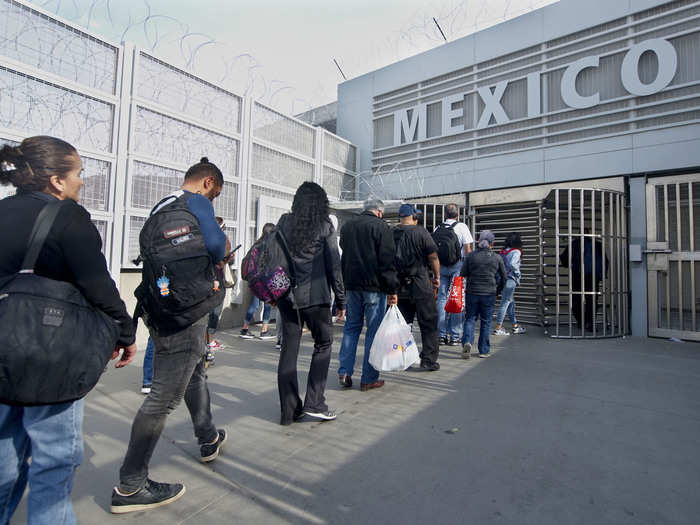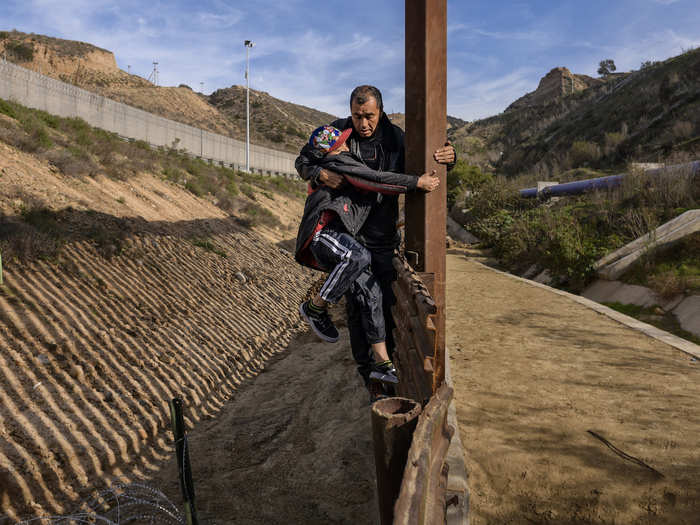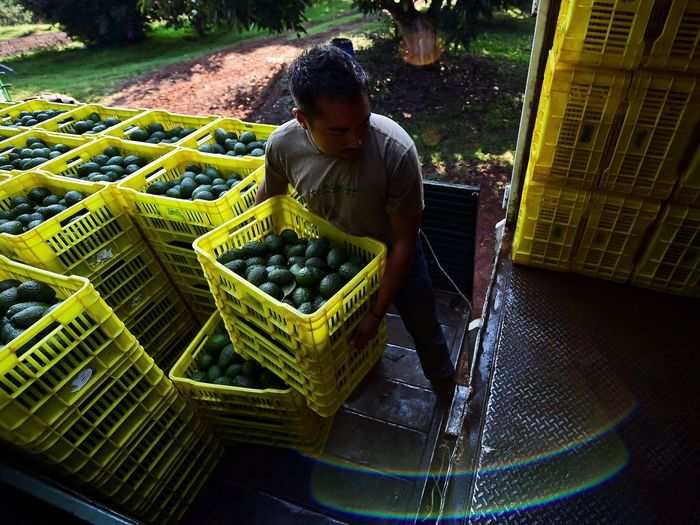It would open up a major legal dilemma around American citizens' rights to travel.
Part of being an American includes the right to freedom of movement — so a border closure could be seen as a threat to those rights.
It also risks the possibility of American citizens being stuck outside the US, unable to enter their own countries.
"The legal challenges to a border declaration will depend on what President Trump does," Stephen Yale-Loehr, a professor at the Cornell University Law School, said in a statement. "If President Trump closed the border to green card holders and US citizens, they could argue that doing so violates their First Amendment rights to freedom of association and travel."
Yale-Loehr said this concept was a major legal hurdle for Trump's original travel ban in January 2017.
His ill-fated executive order, which was quickly struck down by federal courts, blocked even green card holders from certain majority-Muslim countries from entering the US and triggered chaos at airports across the country. (The Supreme Court upheld Trump's third iteration of his travel ban.)
It could actually worsen illegal immigration.
By shutting down the ports of entry, migrants would no longer be able to seek asylum at legal crossings in the US. Far from discouraging those migrants from crossing the border at all, it would just force them to cross illegally, according to Penichet-Paul.
Any migrant can request asylum once he or she reaches US soil, and the two most common ways are by entering a port of entry, legally, or by crossing the border illegally and getting arrested by Border Patrol agents.
If there's no legal way to enter the US to request asylum, they'll simply opt for the illegal way — and that makes Border Patrol agents' jobs more difficult, not easier, Penichet-Paul said.
"It would lead more people to cross between the ports of entry, to request asylum between ports of entry," he said. "As a result of that, that's going to put more pressure on Border Patrol agents to process those individuals and ensure that the right to seek asylum continues to be met."
If the Trump administration closes the border without keeping truck lanes open, the US economy will feel the strain almost immediately, and food prices could spike.
When the Trump administration shuttered one San Diego border-crossing last November for a mere five hours, US businesses lost an estimated $5.3 million, according to Penichet-Paul.
Closing every single port of entry along the entire southern border, indefinitely, would wreak far more havoc, he said. Mexico is America's third-largest trading partner. Roughly $558 billion in goods flowed across the border in 2017 alone.
American consumers would feel much of the brunt, with prices spiking for the fruits and vegetables imported from Mexico — namely products like avocados, strawberries, tomatoes, onions, shallots, bell peppers, squash, chili peppers, and cucumbers.
Read more: A US-Mexico border shutdown threatens more than just avocados — here are all the foods that could disappear from store shelves
"Once you close the border, you will start to see the effects most likely within the first day, and the effects will only continue to amplify as the border continues to be closed," Penichet-Paul said.
He continued: "Maybe once you reach one or a couple of weeks, that's when you'll start to notice things like agricultural products not coming into the US, supply chains disrupted, and that's just a testament to how important and vital the border is to the flow of the economy."



